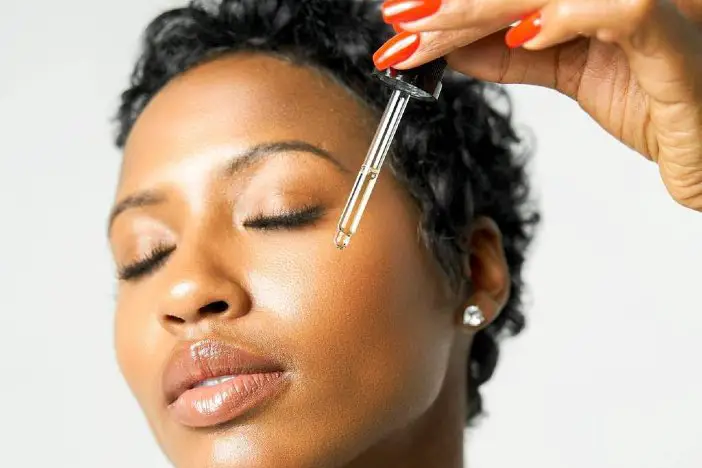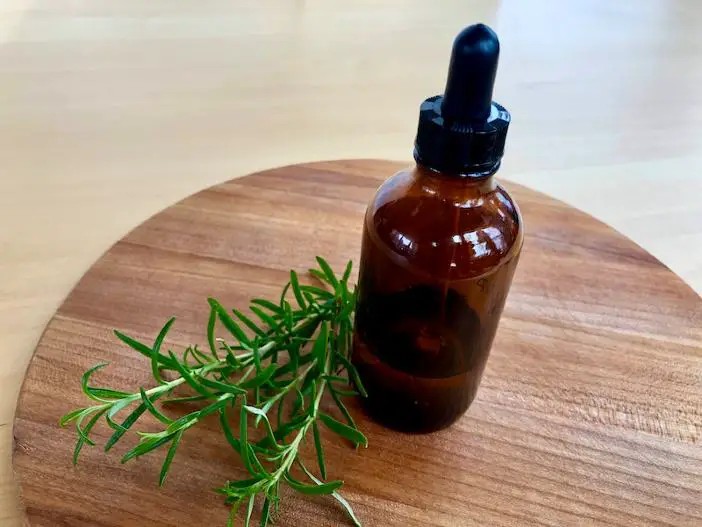Vitamin C is something you would have vaguely heard of if you are conscious of what you put on your skin. So, it natural to ask, is vitamin C good for my dark skin?
It comes in different forms. However, vitamin C serum is one of the most popular forms the antioxidant comes in.
We all know face serums are active ingredients-filled products used in hydrating and treating the skin. But there are also other powerful treatments you can get your daily skincare dose of vitamin C. This includes lotions, moisturizers, and creams.
According to board-certified dermatologist Dr. Caroline Robinson, serums, creams, lotions are highly concentrated with Vitamin C as an active ingredient (consisting of 10% to 20%).
Vitamin C is seen as an excellent component in helping the body gain back its youthful glow and giving it the proper shine it needs.
But does this also pertains to dark skin?
The only way to answer this is to look at the benefits you would gain from applying vitamin C to your body.
Vitamin C Benefits on Dark Skin

1. Lightens dark spots
If you are into skincare, and you pay attention to your skin issues, then you would need vitamin c to help with your dark spots. Vitamin C is known to help fade dark spots or hyperpigmentation in the body.
Whether it is sun spots, age spots, acne spots, or melisma, vitamin c is good for dark skin because it would help lighten the dark areas.
Vitamin C slows down melanin production, which in turn reduces the dark spots on your skin complexion.
Also, when it brightens the skin, it does so without altering your skin complexion or making your dark skin shades even more defined. Rather it blends it naturally until they are evened out.
2. It helps to reduce inflammation and redness
Redness and inflammation on the skin are caused by several factors like sun damage, acne, product, allergic reactions, or thanks to skin conditions like eczema and dermatitis.
Dr. Howard Sobel, a dermatologist surgeon, says Vitamin C has anti-inflammatory properties which help to reduce redness and inflammation on the skin.
You can apply vitamin C treatment topically to soothe your skin and improve its appearance. However, for skin conditions like dermatitis or rosacea, you should use treatments with 10% concentration to avoid further irritation, Dr. Sobel said.
3. Vitamin C heals the skin
You can use vitamin C to treat wounds and improve the healing speed. A study found that there is a significant speeding up of the healing process of wounds. Also, vitamin C boosts the absorption of iron as a necessary nutrient needed for healing wounds.
If you also take vitamin C supplements, there is a chance the healing process of your wounds would drastically improve. It has been scientifically proven to help.
4. It boosts collagen production
As highlighted, vitamin C boosts collagen production and helps the body stay active and youthful. The naturally occurring protein fiber depletes as we age, leading to aging effects showing on the face.
However, with vitamin C boost, collagen is stimulated, and the process of cell regeneration is made faster. Therefore, new skin cells are produced, and aging effects are reduced.

5. Vitamin C reduces sign of aging
One good thing about vitamin C for your dark skin is its ability to stimulate the production of collagen and elastin in the skin.
The skin ages as collagen production reduce. This results in the skin losing elasticity and firmness. If you apply vitamin C daily, you would be enhancing the production of collagen in the skin tissues.
As a result, this would reduce aging effects like wrinkles and fine lines on your skin. Even though you can’t stop aging, vitamin C would help you slow it down.
6. Vitamin C helps to reduce dark circles
Vitamin C keeps the under-eye area hydrated and fresh. When you apply skincare products fortified with collagen, you would be getting an active product that would plump your under-eye area and reduce your dark circles.
Also, fine lines and redness around your eyes can be eased when vitamin C is applied topically. This helps it to clear premature aging skin aging.
7. It hydrates the skin
Another reason vitamin C is good for dark skin is its ability to hydrate the skin. Vitamin C contains magnesium ascorbyl phosphate, which has been found to have a hydrating effect.
You can use vitamin C to keep your skin hydrated and supple. Also, it reduces the chance of having transepidermal water loss. So not only does it hydrate, but it also locks and retains moisture on the skin.
8. It protects the skin from sun damage
Vitamin C helps to reduce the damages done by ultraviolet (UV) rays. When the skin is exposed to the sun, it leads to damages like discoloration, wrinkles, dark spots, and aging.
The damages are caused by free radicals released by the sun. However, vitamin C limits the effects of these radicals due to its antioxidant properties.
Suzanne Friedler, MD, a board-certified dermatologist, says, “Vitamin C works to bind the free radicals, acting like Pac-Men taking them out of circulation so that they can’t damage the skin.”
Although, this does not count as a replacement for sunscreen. Using a combination of the two better fortifies your skin against radicals. Dark skin still needs sunscreen protection to block out UVA and UVB rays.
9. Vitamin C helps to fade scars
You can use topical vitamin C to reduce scars on your skin. Vitamin C is known to help reduce forms of scars, including surgical. Vitamin C has properties that can also heal surgical scars.
You can also use vitamin C to clear acne and sunburn scars. Vitamin C is an anti-inflammatory ingredient that soothes the skin and clears it of any irritating effects.
Vitamin C for Dark Skins FAQs

What is vitamin C?
Vitamin C is an antioxidant. Naturally, the body needs antioxidants to keep it healthy. And vitamin C is an antioxidant that is essential to the body and skin health.
According to board-certified dermatologist Dr. Patricia Wexler, “vitamin C is a potent antioxidant that can neutralize free radicals.” The antioxidant properties it contains helps vitamin C aid the skin’s natural rejuvenation and regeneration.
This helps the skin cells grow faster and repairs damaged skin cells. You need topical vitamin C as much as you need food rich in vitamin C to help fight the daily aggressors caused by the sun and free radicals.
Vitamin C reduces the production of free radicals in our bodies. It keeps our skin cells healthy and also prevents premature aging. This also helps to protect the skin from precancerous changes from excess UV exposure.
What type of vitamin C is good for my dark skin?
You can use vitamin C in various forms, but what you should look out for in skincare vitamin C is L-ascorbic acid.
According to Goldenberg Dermatologist Kristina Goldenberg, “the key is not the vehicle that vitamin C comes in but in the form that it is applied.”
Therefore, the most effective form of vitamin C comes in is serums. Dr. Wexler agrees with this, saying, “serums are more effective on the skin than toners.”
Ascorbic acid is more effective in serums because they penetrate the skin barrier better and faster. Also, if you want to use vitamin C serums, you should combine them with other antioxidants like vitamin E and hyaluronic acid.
But you can find vitamin C in other forms like creams, transdermal patches, and toners. They also work well on the skin when the concentrations are 10% to 20%.
The higher the vitamin C concentration, the more effective it becomes. However, it shouldn’t be more than 20% to avoid skin irritations.

How do I use vitamin C on my dark skin?
Vitamin C is tolerable and won’t harm your skin. But you should patch test concentrated products.
All you have to do is apply a small amount of the vitamin C product on an inconspicuous area of your skin, for instance, your underarm.
Wait for at least 24 hours, and if you do not react, you can apply it to your face. However, if a reaction occurs, discontinue the product.
Use vitamin C serums in your normal skincare routine. That is, after cleanser, exfoliator, and toner, but before moisturizer and sunscreen. You can use the serum once or twice a day according to your skincare routine.
Can vitamin C darken my skin?
Yes, it can. However, this is as an effect of oxidation.
Oxidation is a result of reduced molecules or atoms when the component comes in contact with oxygen. Vitamin C can be oxidized in a bottle or on the skin.
Vitamin C could lose its potency when it comes in contact with air, heat, or light. And when applied to the skin, it makes it look darker.
Also, vitamin C can become oxidized on your skin with too much exposure to the sun. This leads to your skin becoming darker or looking tanned.
Does vitamin C have any side effects on my dark skin?
Yes, it does. Vitamin C could cause side effects for people with sensitive skins.
As I highlighted earlier, the antioxidant is usually tolerable to most skins. However, it could cause redness and allergies.
This is why patch testing is essential if you have sensitive skin. Or you could use a less concentrated vitamin C product. The percentage should be around 5% or less if your skin gets irritated easily.

Conclusion
If you love your skin and are so into skincare routines, then vitamin C shouldn’t be a new component to you. But you might wonder if vitamin c is good for your dark skin.
Well, it is. And it is recommended you use one, like Timeless Skin Care 20% Vitamin C + E Ferulic Acid Serum. The serum is lightweight and can be used to treat the skin with its anti-aging effects.
Also, it is fortified with vitamin E and ferulic acid to work better to protect your skin and correct it. The serum is effective and safe for daily use.
You can get anti-aging benefits and also skin brightening benefits from using the ingredient. But to preserve it, make sure to keep away from light and air. An oxidized vitamin C could make your skin darker.
Africana Fashion provides skincare articles to boost your everyday lifestyle and confidence. You can check the best of the articles here.







